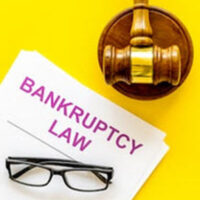Bankruptcy 101

If you are considering bankruptcy, you may be unsure of the types of bankruptcy, what types of debts bankruptcy discharges, or how long the process will take. This Bankruptcy 101 guide will help you understand the differences between Chapter 7 and Chapter 13 bankruptcy, additional bankruptcy basics, what debts are dischargeable in a bankruptcy, and which bankruptcy options may be available to you.
Chapter 7 Bankruptcy
A Chapter 7 bankruptcy is a personal bankruptcy that is also known as “straight” or “liquidation” bankruptcy. This type of bankruptcy will eliminate most, if not all, debt that a person may have. Some debts will not be dischargeable, such as child support payments or student loans. Filing for a Chapter 7 bankruptcy requires passing a very specific test which will determine if a person has an income threshold that is low enough to legally file for bankruptcy. If a debtor does file for Chapter 7 bankruptcy all creditor calls should cease immediately. A Chapter 7 bankruptcy may only be filed once every 6-8 years. Filing for Chapter 7 bankruptcy can provide a fresh financial start for a debtor as most debts are wiped away, and many assets are liquidated to pay for debts. Chapter 7 bankruptcies typically happen on a faster scale than Chapter 13 bankruptcy.
Chapter 13 Bankruptcy
A Chapter 13 bankruptcy is also known as a “reorganization” bankruptcy. This bankruptcy option is available even if a Chapter 7 bankruptcy was filed in the past 6-8 years. Chapter 13 their bankruptcies differ from Chapter 7 bankruptcies as not all assets are sold, instead, a repayment and reorganization of debt plan is created for the debtor that lasts 3-5 years, and allows the debtor to repay the debts they owe and also keep their assets. In these reorganization plans, a debtor may be able to pay back less than 100% of what they originally owed, however, these amounts must be approved by creditors.
Dischargeable Debt
Some debts will be dischargeable in bankruptcy and others will not be. For example, if you are filing for a Chapter 7 bankruptcy, almost all unsecured debt is discharged. Some debts, however, are never dischargeable such as student loans, child support payments, income taxes, and financial obligations that result from court orders.
Chapter 13 bankruptcies operate differently than Chapter 7 bankruptcies and will not eliminate any debt, but rather reduce the amount of debt owed or place all of the debts owed into a reorganization plan for the debtor to repay over 3-5 years. Therefore there are very minimal, if any, debts that are discharged in a Chapter 13 bankruptcy.
Contact an Experienced Bankruptcy Attorney
Bankruptcy laws are complex and challenging, and making the determination what type of bankruptcy to file can be significant to your financial future. Understanding your legal options is critical to choosing the correct bankruptcy for your specific situation. Lehighton & Carbon county bankruptcy attorney Adam Weaver can help you explore all of your bankruptcy options. Call 570-818-4888 or contact our office online for a consultation.
Resource:
uscourts.gov/services-forms/bankruptcy/bankruptcy-basics/chapter-13-bankruptcy-basics
